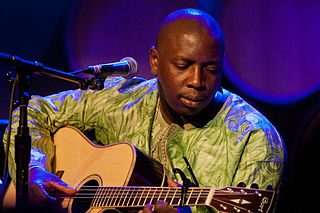A Quote by Noam Chomsky
...a very terrifying aspect of our society, and other societies, is the equanimity and the detachment with which sane, reasonable, sensible people can observe [war and human suffering]. I think that's more terrifying than the occasional Hitler ...or other that crop up - these people would not able to operate were it not for this apathy and equanimity - and therefore I think that it is in some sense the sane and reasonable and tolerant people who should share a very serious burden of guilt, that they very easily throw on the shoulders of others who seem more extreme and more violent.
Quote Topics
Able
Apathy
Aspect
Burden
Crop
Detachment
Easily
Equanimity
Extreme
Guilt
Human
Human Suffering
More
Observe
Occasional
Operate
Other
Others
Our
Our Society
People
Reasonable
Sane
Seem
Sense
Sensible
Serious
Share
Should
Shoulders
Societies
Society
Some
Suffering
Terrifying
Than
Therefore
Think
Throw
Tolerant
Up
Very
Violent
War
Were
Which
Would
Related Quotes
When philosophers talk about reason they often have in mind Having been in the business of philosophy more than half my life, I have learned that reason doesn't change many minds. But there's a more ordinary sense of resonableness, which involves not just logic but a sensitivity to other peoples real concerns, a desire to understand, even when you don't agree. Many people are reasonable in this way.I'm willing to think that the world will be made better by the conversations of reasonable people, even if there are unreasonable people and people who don't want to converse as well.
I get some very fierce anonymous letters about the Athanasian Creed, which would amuse you, if they were not so sad as to what they imply on the part of the writers. The last tells me that I am a Pharisee, and should have helped to crucify our Lord. It is very odd that people should think, much more write, such things; but the passion of unbelief is a very serious thing while it lasts.
--Why are we fighting them? --They're mad. We're sane. --How do we know? --That we're sane? --Yes. --Am I sane? --To all appearances. --And you, do you consider yourself sane? --I do. --Well, there you have it. --But don't they also consider themselves sane? --I think they know. Deep down. That they're not sane. --How must that make them feel? --Terrible, I should think. They must fight ever more fiercely, in order to deny what they know to be true. That they are not sane.
I realize how myself and other people have started to almost fool ourselves that it's more important to us and more real than the real world, the offline world, and we value looking at our phone and pixels on a screen more than connecting eye to eye with a human being, which is terrifying to me because we're becoming robots.
If you were going to be attracted to a mystical faith which involved the contemplative life, Buddhism would be quite reasonable. But then, not everybody is a budding mystic. In fact, it's pretty certain that very few people are. So another kind of religion, one that was perhaps more pragmatic and service-oriented, might appeal to those others. So I think you have to take your values into account.
I think what you have to realise is that our generation is the first generation since its sexual awakening has come into the world and realised that sex can mean, ultimately, death. That has had a very serious effect on social morals and on the way people deal with each other. As we approach the millennium, people are getting more and more confused and contact is getting more and more sanitised, so there's a lot more mental games being played.
One of the less attractive aspects of human nature is our tendency to hate the people we haven't treated very well; it's much easier than accepting guilt. If we can convince ourselves that the people we betrayed or enslaved were subhuman monsters in the first place, then our guilt isn't nearly so black as we secretly know that it is. Humans are very, very good at shifting blame and avoiding guilt.
If you don't educate people well, then you're going to have a lot of violent, angry young men and women. You can go around saying they're all so violent, just throw them in jail, this is an underclass, what can you do? You can create fear. The issue of violence is very suitable for a repressive society. Then you can have more legislation, more police, more laws to fight crime, when all you need to do is to encourage people in a different way.
As you get drawn more and more into other activities, like political activities, very demanding, you have to find different rhythms of writing; I think that's the word I'm looking for, rhythms of creativity which then, of course, become very intense. I think your writing then tends to be very intensified simply because there are other demands which seem equally important.






































